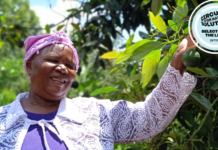The
milk production in Kenya is wanting, to an extent that Kenya could be forced to
turn to imports should the situation remain the same. The Agriculture CS Peter
Munya has urged dairy farmers to increase their production to avoid going the
imports route. The Covid-19 pandemic has been identified as one of the factors
that have contributed to the low milk production in the country.
According to the CS, recent trends show that the amount of milk produced in the country and going through the formal sector has continued to decline since the beginning of this year. This is reflected in the volume of formally marketed milk which has reduced from 63.4m litres in January to 40.2m litres in June.
Furthermore, the unprecedented shortage could soon affect the milk processors in the country who have minimum stocks. At the moment, only New Kenya Commercial Creameries (KCC) has enough stocks for processing with the CS asking them to share with the other processors.
Dairy farming in the country just like any other agricultural activity is heavily dependent on rainfall. Thus when there is enough rainfall a glut in milk production is experienced and when there are dry spells milk shortages occur. This leads to the uneven supply of milk during the year as well as fluctuating producer prices. To address this challenge, Munya says the government has included milk as part of the strategic food reserve. The excess milk can be converted and stored as milk powder and long-life products for use during the times when there are milk shortages.
Illegal milk imports
Munya says that the government has also stepped up the fight against illegal milk imports. “Incidences of milk imported illegally has also found its way into our local market. To ensure that only legally imported dairy products are allowed into the country, my ministry working together with Kenya Dairy Board and other government authorities have instituted strict regulations and increased surveillance along our porous borders and final destination markets. Several unscrupulous business people have been arrested and aligned in court as a result.
Meanwhile, the government has supported the Kenya Dairy Board to construct and equip a modern state of the art dairy laboratory at Kabete, Nairobi. Construction of the facility has been completed and equipment installed and will in the shortest time possible become operational. The CS says this will greatly enhance milk testing as well as an assessment of the quality and safety of milk products to comply with standards and other existing regulations. He says the net effect of this is improved quality and safety of our dairy products.
Kenya has one of the biggest dairy sectors in Africa producing 5.2 billion litres per annum. In Kenya, the dairy sector plays a huge role as a source of livelihood to 1.8 million smallholder farmers. The sector offers 750,000 people direct employment with 500,000 employed indirectly. Also, the dairy sector contributes 4% to the National Gross Domestic Product (GDP); 12% to the Agriculture GDP and 44% to the livestock GDP. Its per capita consumption stands at 110 litres per annum. Although this is one of the biggest in Sub – Sahara Africa it is still below the FAO recommended per capita of 220 litres per annum.









